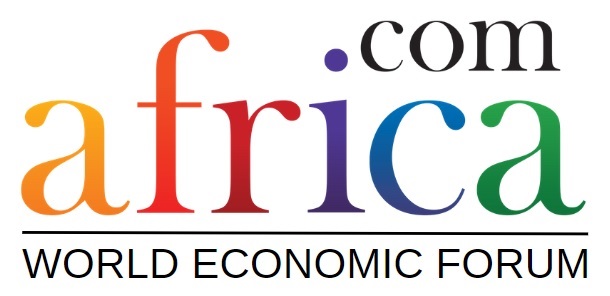
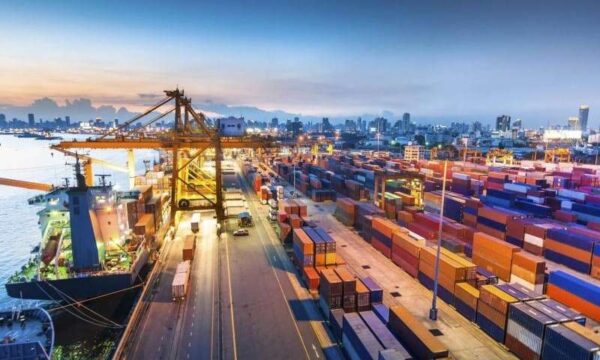
Multilateral Collaboration Is Indispensable To Unlocking Africa’s Potential
As the world manages numerous geopolitical and economic challenges—including high inflation and interest rates, conflict, or water and food insecurity—multilateral collaboration is indispensable to achieving both peace and prosperity in a troubled world. In other words, we need to build bridges rather than burn them if we want to reach our common goals. Many African nations are particularly vulnerable to the effects of a fragmented geopolitical environment, and it will require an engaged community of
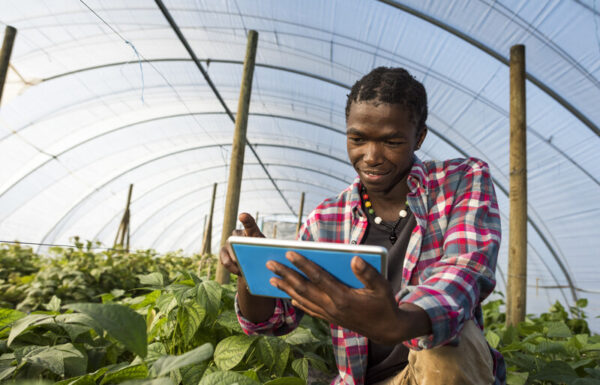
Unlocking Africa’s $1 Trillion Food Economy: The Role Of Global Aid And Sustainable Technology
Global aid is crucial to realizing Africa’s $1 trillion food economy. It can help promote sustainable growth by targeting obstacles, enhancing resilience and unleashing the continent’s agricultural capabilities. Global aid is also vital for nurturing trade and economic integration, which are fundamental to Africa’s agricultural development agenda. The African Development Bank forecasts a potential surge in the food and agriculture market from $280 billion annually to $1 trillion by 2030. However, to achieve that, this aid must
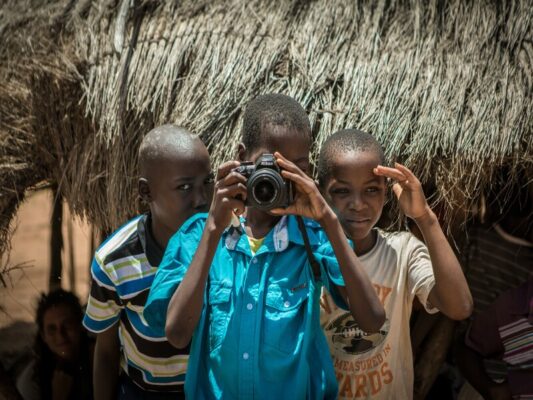
Empower Africa’s Youth To Create Jobs, Growth And Peace
Seismic change is underway in Africa. The United Nations projects that sub-Saharan Africa will account for more than half of the growth of the world’s population between 2022 and 2050. That means that by 2050, one out of every four people on earth, and more than a third of the world’s young people (between the ages of 15 and 24), are expected to be African. Remarkably, during the same period, Nigeria is expected to surpass
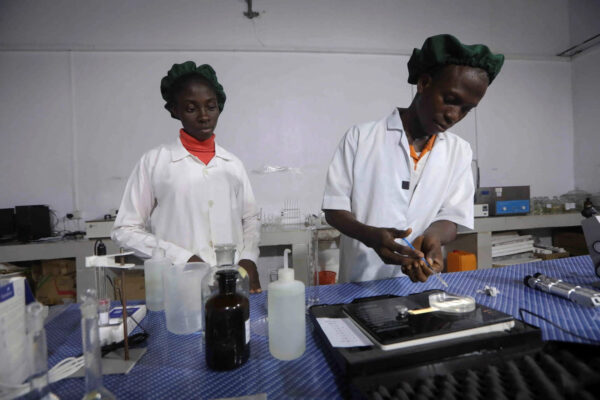
There’s A Science Research Gap In Africa. Here’s How To Fill It
The world is enjoying unprecedented levels of interconnectedness, which has brought enormous benefits, but also some negative consequences such as diseases spreading across the globe easily and more rapidly. This has been evident with the recent outbreaks of Ebola and Zika, and COVID-19 presenting perhaps the greatest global challenge of recent times. According to the WHO, climate change is creating new health risks and acting as a “threat multiplier”. A recent study reveals that it is
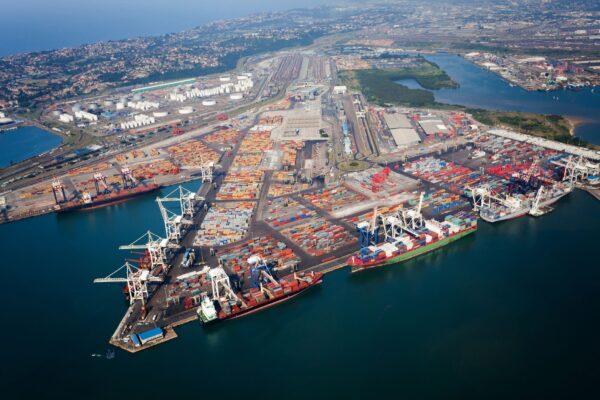
A New Economic Partnership Is Emerging Between Africa And The Gulf States
This week, Bola Tinubu, the President of Nigeria, Paul Kagame, the President of Rwanda, and over 35 ministers from across Africa participated in the Special Meeting on Global Collaboration, Growth, and Energy for Development in Riyadh. The emerging economic relations between Africa and the Gulf Cooperation Council (GCC) — namely the UAE, Saudi Arabia, Qatar, Kuwait, Bahrain and Oman — are poised for significant growth, driven by mutual interests in diversification, investment and sustainable development.

How Fintech In LMICs Can Inspire The Digital Healthcare Revolution
Imagine a world where the most pressing healthcare challenges are met not by incremental steps but by giant leaps of innovation that take us over and beyond the conventional barriers of infrastructure and access. This vision isn’t far-fetched; it’s precisely what’s happening today as low- and middle-income countries (LMICs), drawing inspiration from their remarkable fintech innovations, stand on the cusp of a digital health revolution. In much the same way the fintech revolution redefined financial
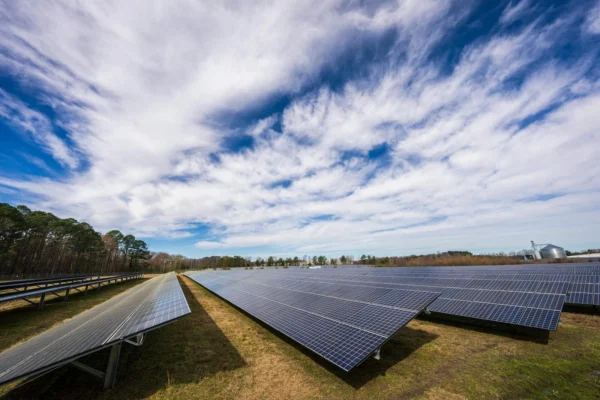
A New Study Reveals How Renewables Could Power Africa By 2040
Over half of Africa’s people – about 600 million – lack access to even the bare minimum of electricity. The tough question to answer is how access can be extended without adding to global warming by relying on fossil fuels. We – a team from Rwanda and Germany who work in the field of renewable energy scientific modelling – set out to find the answer by building the Renewable Power Plant Database Africa, the first on the
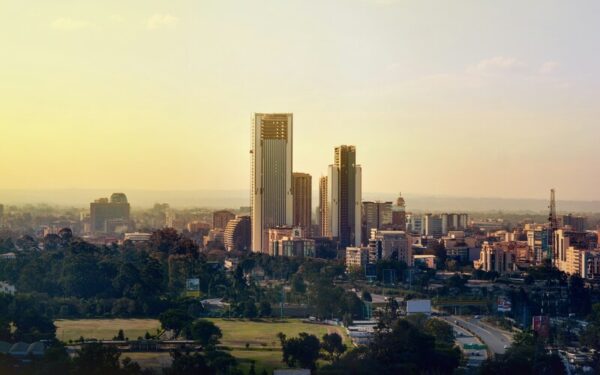
How African Cities Can Learn From Each Other About Building Climate Resilience
The climate is changing at an astronomical rate and the impact of this can be seen everywhere. Imagine stepping outside your apartment for an early morning jog, only to be greeted by a thick brown dust that makes breathing unpleasant. The seasonal harmattan wind brings another round of degraded air quality that causes respiratory issues for many. Each year, it’s a stark reminder about how climate shocks are altering the everyday lives of millions of Africans, especially
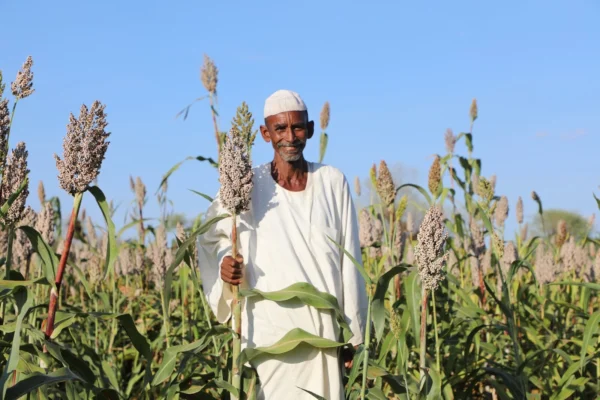
Food Security: Can War-Torn Sudan Recover And Help Address The Global Food Crisis?
Sudan has long been viewed as a future “breadbasket” for the Middle East, Africa and beyond, especially with food insecurity on the rise worldwide. However, the country’s own food security, agricultural output and future prospects are increasingly under threat as a result of its ongoing civil war. Experts rank natural resource shortages of food and water as one of the top five risks facing the world in the next 10 years. This pressing issue will also be
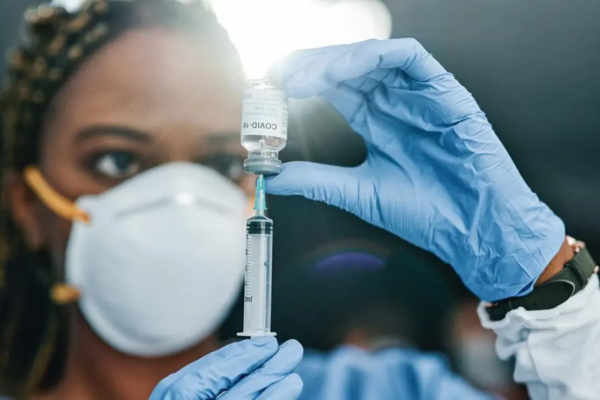
African Nations Have Agreed A Plan To Increase Locally Produced Vaccines. This Is How It Will Work
African leaders have agreed a deal aimed at providing greater health security for people across the continent. The initiative, led by Africa Centres for Disease Control and Prevention (Africa CDC), establishes a pooled procurement mechanism for vaccines and other healthcare products. “The decision means creating a robust market for manufacturers and ensuring the health security of all Africans,” the Director General of Africa CDC, Dr Jean Kaseya, said after the agreement was made at an African
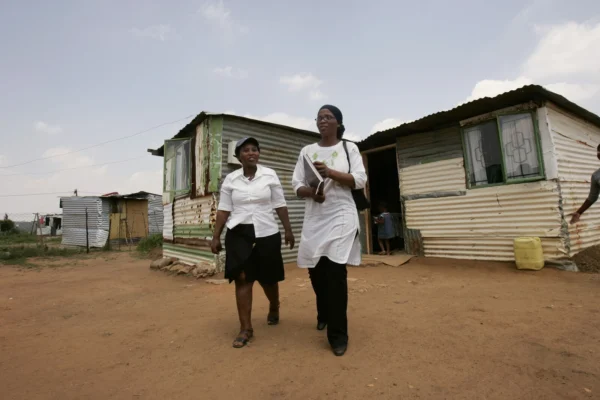
How Patient Organizations Are Advancing Healthcare In Africa
The African healthcare landscape is rapidly evolving. A combination of population increases and a growing aged population poses a significant challenge to Africa’s healthcare systems. But, in a challenging environment, patient organizations are emerging as a powerful force for good. By 2050, Africa will have a population of 2.5 billion, up from 1.2 billion in 2019. With the population increase comes an increase in non-communicable diseases which are projected to account for almost 50% of deaths
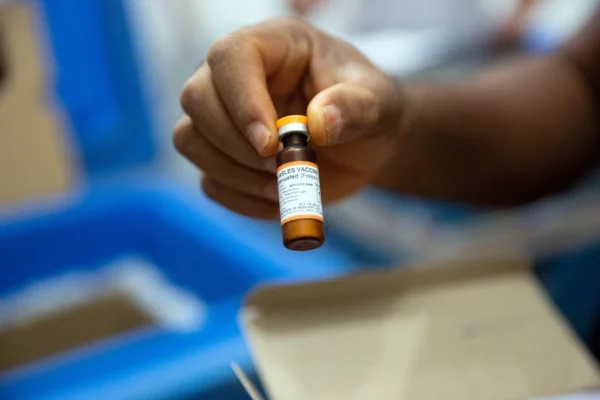
Measles Warning From WHO Plus Other Top Health Stories
1. More than half the world is facing high measles risk, WHO says More than half of the world’s countries will be at a high or very high risk of measles outbreaks by the end of the year unless urgent action is taken, according to the World Health Organization (WHO). Measles is a highly contagious, airborne virus that mainly affects children under the age of five. It can be prevented by vaccination – more than 50 million
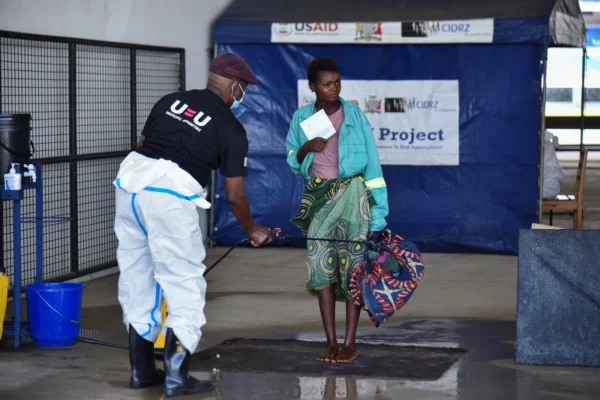
Call For Action On Rising Cholera Cases, And Other Health Stories
1. Action needed to prevent worldwide cholera upsurge – ICG Immediate action is needed to prevent a “multi-year upsurge in cholera cases worldwide”, according to the organization that manages the world’s stockpile of cholera vaccine. The International Coordinating Group (ICG) on Vaccine Provision has warned that millions of people are at risk from the disease due to lack of clean water, soap and toilets, and a shortage of the vaccine used to prevent the disease. Cases of
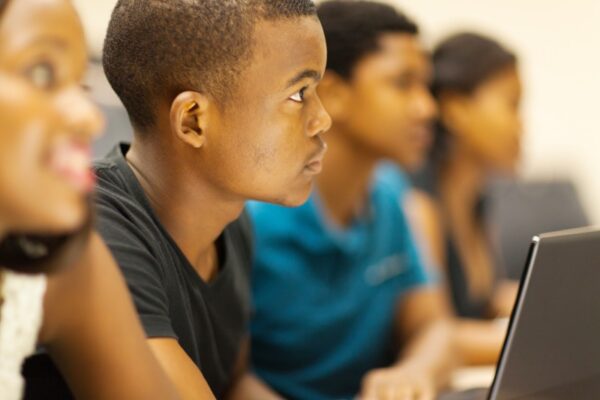
Why The World Should Look To Africa For Education Innovation
Within a decade, one in three entrants to the global workforce will be from Africa. Over the next 30 years, the majority of the world’s new workers may well be on the continent. What they learn in the classroom and how they learn it is a vital question of our time. But Africa’s future success in education is not yet guaranteed. Basic literacy skills have declined in four out of ten African countries over the last three decades.
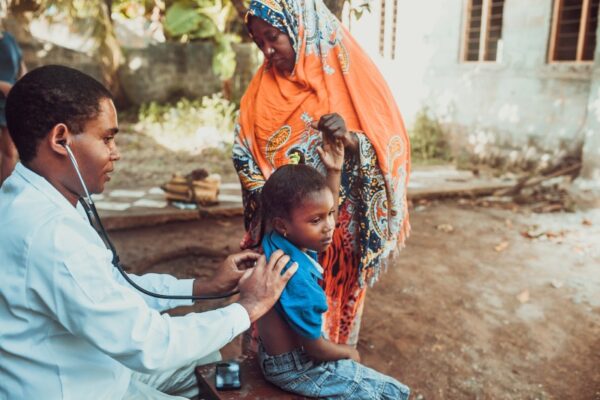
Lessons From Rwanda: Building Systems To Protect Against Infectious Diseases And Biothreats
The past four years have highlighted significant gaps in our global health security infrastructure – while we have seen tremendous technical advances in our ability to detect and respond to pathogens, there is significant opportunity to improve the end-to-end response system. There is urgency to act. Increased trade, climate change, and urbanization all lead experts to anticipate increases in both the frequency and severity of naturally occurring pathogens. Meanwhile, rapidly expanding and globalizing capabilities in
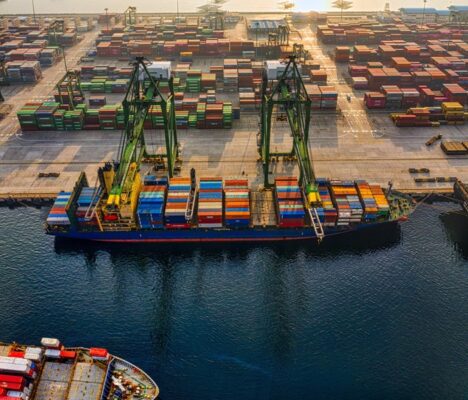
How Has The African Growth And Opportunity Act (AGOA) Benefited African Countries?
To what extent has the Agoa goal been achieved? The duty- and quota-free access to the US market granted by Agoa has helped in boosting trade and investment between sub-Saharan Africa and the US. Many of the qualifying African countries have recorded specific successes in goods exported under Agoa to the US. These include textiles and apparel from Kenya, Ethiopia, Mauritius, Lesotho, Ghana and Madagascar. In Kenya, for instance, the apparel-dominated Agoa sales have grown from US$55 million in 2001 to

In Africa’s Free Trade Area, Investment In Pharmaceuticals Means Impact And Profit
The COVID-19 pandemic brushed away any doubt as to the importance of functioning and productive pharmaceutical industries. Countries across Africa, a continent which struggled to gain equal access to vaccines and that imports the majority of its packaged medicines from abroad, know all too well the importance of a strong domestic pharmaceutical industry and trade. Total demand for packaged medicines in Africa is worth around $18 billion annually, of which 61% is imported and 36%
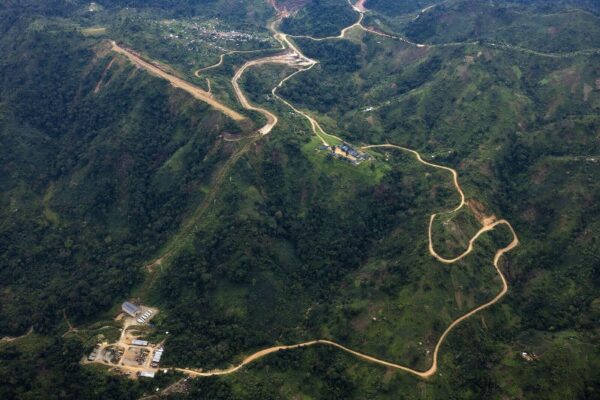
Virunga National Park: How Congo Is Bringing Life And Livelihoods Back Through Creative Conservation
The year 2023 was the hottest on record – 1.48°C above pre-industrial averages – propelling economies and societies into risky, unprecedented territory. Leaders are increasingly called upon to transform the current growth and development models to better steward the planet towards a more secure future Thus, in the programme of this year’s Annual Meeting in Davos, major nature and climate sessions paid particular attention to profiling lighthouse solutions, shining beacons that can show the way towards socio-economic development,
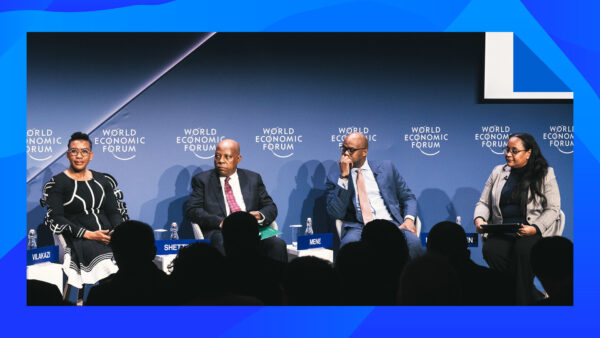
Africa At Davos 2024: Promise, Potential And Mutually Beneficial Partnerships
This article is part of:Centre for Regions, Trade and Geopolitics “This giant is on snooze”. So said Fifi Andrews, who moderated a session in Davos on scaling the African economy, raising the question: Is Africa really rising, or is the ‘sleeping giant’ yet to awaken? Davos 2024 presented a timely opportunity to ring the alarm and delve into the policy and public-private partnerships that could rapidly scale the African economy. The meeting saw a keen focus

New Global Alliance for Women’s Health Could Help Boost Global Economy by $1 Trillion Annually by 2040
A new World Economic Forum report released today shows that closing the women’s health gap would allow more women to live healthier, higher-quality lives, and provide an unprecedented boost to the global economy. Closing the Women’s Health Gap: A $1 Trillion Opportunity to Improve Lives and Economies, developed in collaboration with the McKinsey Health Institute, analyses the health conditions that uniquely or disproportionately affect women and quantifies the health gap today and the potential economic
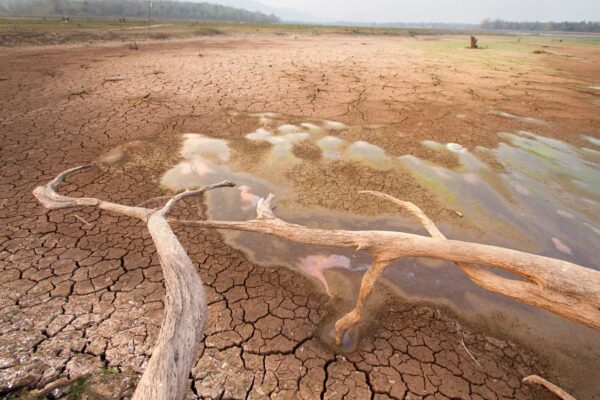
COP28: Bridging The Climate Finance Gap In Africa And Beyond
This article is part of:United Nations Climate Change Conference COP28 As the world converges for COP28, Africa stands at a critical juncture in its fight against climate change. At COP27, the resounding call echoed across the continent and beyond: bridging the climate finance gap is not just a priority; it is an existential necessity. The figures are staggering: the Climate Policy Initiative projects need $2.8 trillion from 2020 to 2030. Given the limited climate finance flows to Africa,
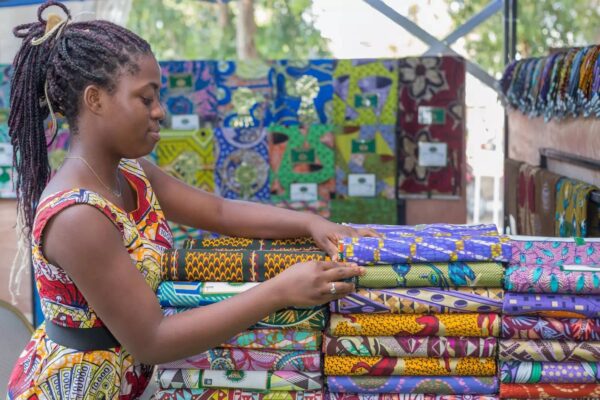
Why Africa’s SMEs Need More Than Money To Ensure Their Growth
Although small and medium businesses (SMEs) account for 95% of all registered businesses and contribute about 50% to the total GDP of sub-Saharan countries, entrepreneurs still face significant obstacles to growth and prosperity, which go beyond the traditional barrier of acquiring finance. Addressing their needs and ability to reach their potential is essential to creating a prosperous Africa. About 40% of SMEs in developing countries grapple with access to finance. This indicates that the financial sector generally struggles to

Securing Critical Minerals For Energy Transition Requires Collective Action
The widespread and rapid increase in adoption of low-carbon technologies required for the energy transition will not be possible without a ramp-up of critical minerals supply at a pace never seen in history. Minerals such as lithium, cobalt, copper, nickel, and rare earth metals are essential inputs in the production of electric vehicles (EVs), renewable energy, power grids, and other clean-energy technologies. The uptake of these low-carbon technologies would need to skyrocket to meet climate
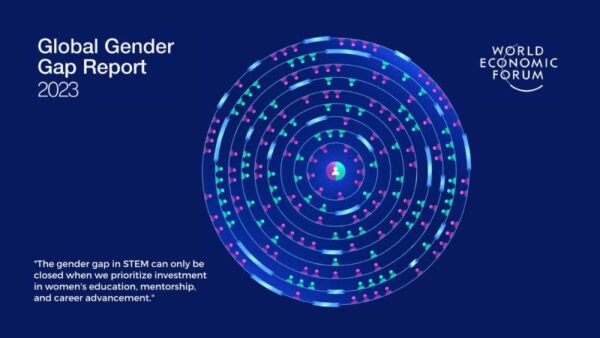
Gender Equality Is Stalling: 131 Years To Close The Gap
Gender parity globally has recovered to pre-COVID-19 levels, but the pace of change has stagnated as converging crises slow progress, according to the World Economic Forum’s Global Gender Gap Report 2023. The report finds that the overall gender gap has closed by 0.3 percentage points compared with last year’s edition. The year of expected parity therefore remains the same as in the 2022 edition: 2154. The overall progress in 2023 is partly due to improvement
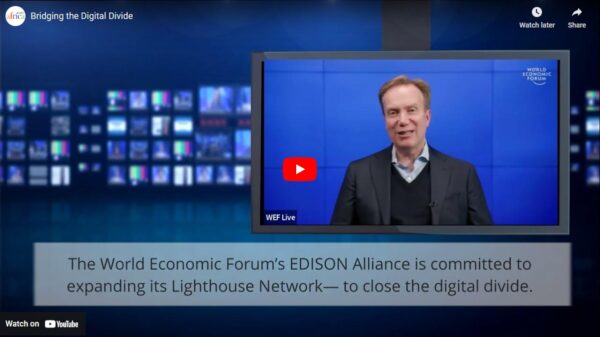
EDISON Alliance: Bridging the Digital Divide
Interview with Børge Brende. President, World Economic Forum Teresa Clarke, Chair of Africa.com interviewed Borge Brende, President of World Economic Forum about the EDISON Alliance Initiatives in Africa following his travels with U.S. President Kamala Harris to Zambia. The World Economic Forum’s EDISON Alliance is committed to expanding its Lighthouse Network—which aims to close the digital divide, particularly for women—by bringing on three new countries in Africa by the end of this year, to support its
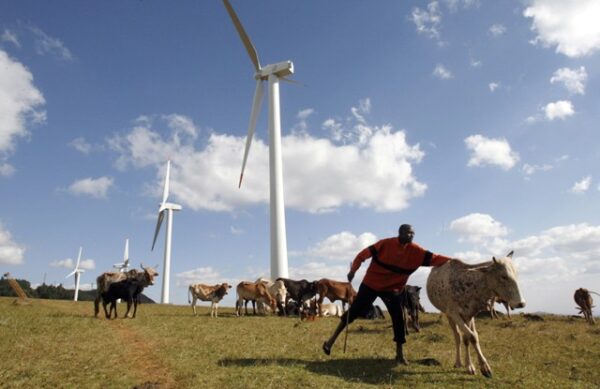
Smallholder Farmers Could Help Fix Global Food Systems With The Right Technology, Here’s How
Smallholder farmers are the heart of the global food system, producing over one-third of the food we eat. Yet for many of the world’s 600 million smallholder farmers, farming is no longer a sustainable livelihood. Farmers are leaving their communities to pursue alternative livelihoods, adding to the weight of challenges already facing our food systems, like geopolitical conflicts, after-effects of the pandemic, and worsening climate shocks, putting food security at risk. Already, nearly 10% of the
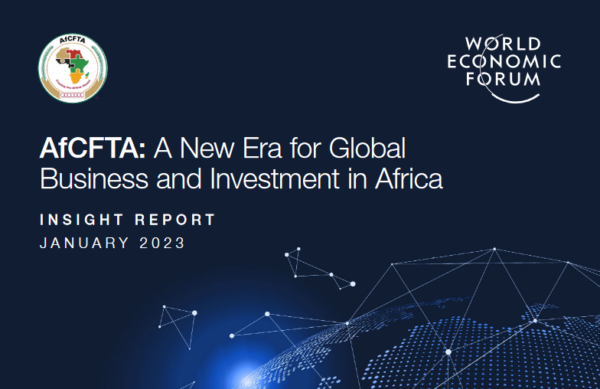
REPORT: AfCFTA-A New Era for Global Business and Investment in Africa
The African Continental Free Trade Area (AfCFTA), established in 2018, will create the world’s largest free trade area, bringing transformative change and tremendous opportunity to African economies and business environments. Its adoption and implementation will accelerate intra-African trade and develop regional and local value chains, creating new business dynamics that offer investors access to a population of 1.7 billion people with combined business and consumer spending reaching $6.7 billion by 2030. Global businesses have an

Leadership in Tech: Here are 4 pathways to getting more women to the top
By Sam Burman. Partner, Heidrick & Struggles Female representation among functional tech leadership, e.g. chief technology officer or chief information officer, has been slow to level up. Improved gender balance among C-level roles is better for businesses as it unlocks consumer spending and gives companies a competitive edge. Organizations can redress gender imbalances by focusing on internal talent development, considering hybrid roles, improving inclusivity and casting the net wider when recruiting. Gender balance within functional
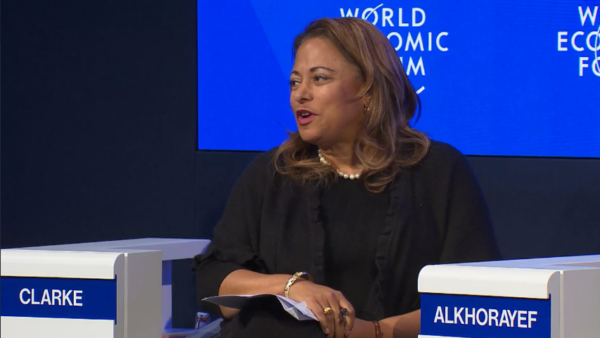
#WEF23: The Return of Manufacturing
Speakers: Teresa Clarke, Roland Busch, Bandar Alkhorayef, Jacqueline Poh, Gretchen Whitmer, Michel Doukeris, Francisco Betti
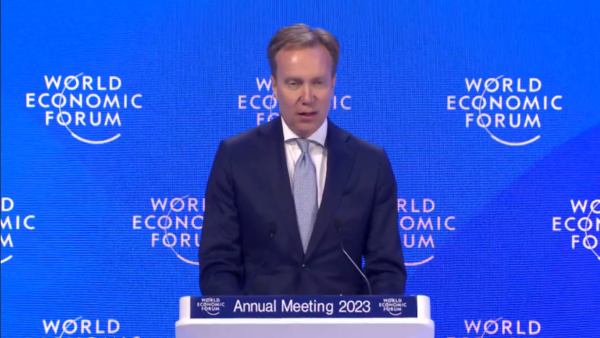
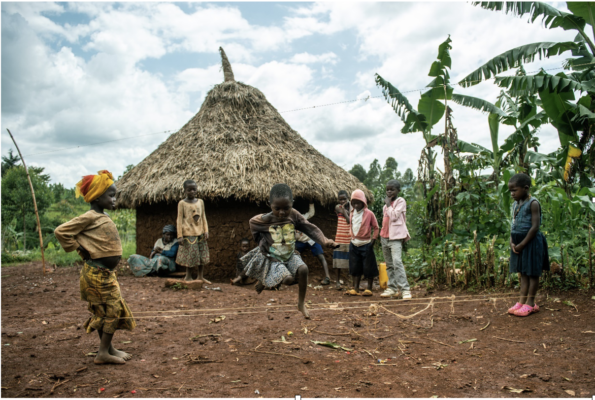
Why digital public infrastructure can be a gamechanger for children
In many parts of the world, the worst of the COVID-19 pandemic seems to be over and lives are back to pre-pandemic normal. This is not the case for everyone, however. The shadow cast by the pandemic is long and still defines the lives of children, especially in low-and middle-income countries of the world. Here are some examples of how: In the first two years of the pandemic, 100 million more children fell into poverty, a

These were the biggest AI developments in 2022. Now we must decide how to use them
In 2022, we were presented with several stunning developments in artificial intelligence (AI). Some believe that these advances push the limits of what we have now (narrow AI) towards the holy grail of artificial general intelligence (a machine that can mimic the thinking and problem-solving capacities of humans but faster and more accurately). Among the many developments in 2022, four breakthroughs are of note and will be significant in 2023 and beyond both within the
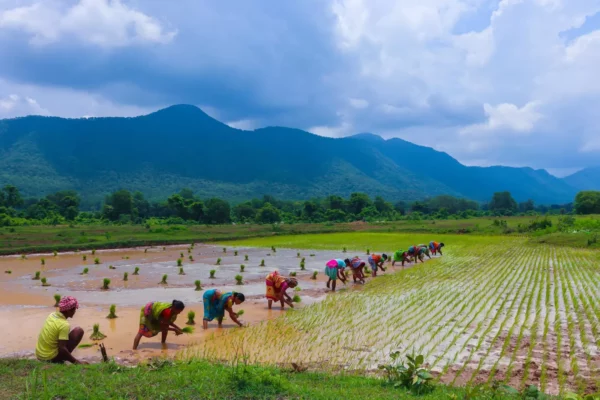
True prosperity will be found in the embrace of the digital economy. These farmers prove it
In India, farmer Saravanan Madhavan digitally connects with buyers to sell his crops. Payments are credited to his account the same day. It’s a welcome departure from how other farmers like him get paid: often late and only partially. Buyer Ramesh Kumar once trekked through fields to find farmers. Now, technology helps him locate and purchase the exact produce he needs at the best price, saving him time and money on travel. For farmers, and

7 essentials to create a resilient global healthcare supply chain
It was 20 years ago, when the SARS outbreak exposed key fragilities in the global healthcare supply chain, that people internationally began to talk seriously about pandemic preparedness. Eight years ago, when the Ebola outbreak proved the world no better prepared to address outbreaks, there was more talk and some action. This included the founding of the Pandemic Supply Chain Network (PSCN), by the World Health Organization, World Economic Forum, World Bank, World Food Programme,

6 work challenges the metaverse will address
The metaverse represents the next quantum leap forward. It promises to change how we socialize, play, learn and shop and will also heavily influence how we work. It promises big impact – as a $5 trillion industry by 2030 and with a positive, “breakthrough” or “transformational” effect on work, according to industry experts. Whilst there are challenges of a shared, persistent, real-time 3D internet, opportunities to revolutionize the world of work are everywhere. 1. Rethinking employee onboarding The showdown for top talent in
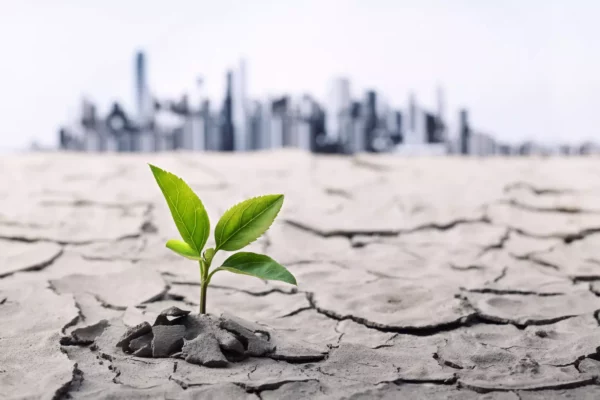
5 ways financial leaders can bring us closer to net-zero
Looking ahead in 2023, economic uncertainty looms large, as ongoing and overlapping global crises – from the COVID-19 pandemic to the war in Ukraine to the relentless effects of climate change – risk paralyzing progress. In times of such upheaval, maintaining the status quo can seem like the sure path. But it is in these moments that we need boldness more than ever. Reaching net-zero by the end of the decade requires ambitious commitments and

Towards a new global agreement to facilitate investment for development
The impact of sustainable investment. Foreign direct investment (FDI) can play an important role in delivering the 2030 Agenda for Sustainable Development. Investment flows help advance a nation’s development by bringing capital, employment, export opportunities, greater consumer choice, advanced technologies, managerial experience and overall economic growth. In 2017, 70 economies started a process at the World Trade Organization (WTO) with the goal to develop a new agreement on Investment Facilitation for Development. Three years later, negotiations were launched
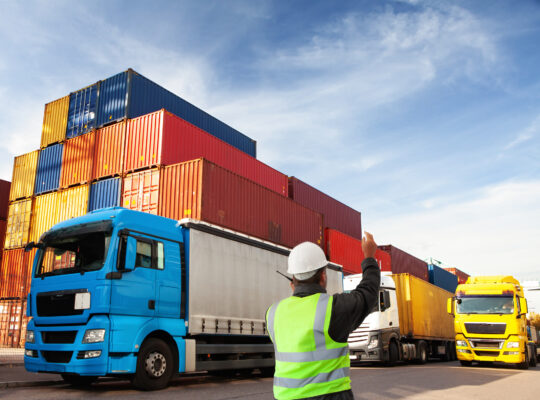
Trading-up: Taking the high road out of trade doldrums
As we enter 2023, with the World Economic Forum’s Annual Meeting in Davos taking place under the banner of “Cooperation in a Fragmented World”, the future of global trade and investment is murky. Geopolitical tensions and industrial policy have cast a long shadow on economic openness. Teetering on the brink of a painful downturn, the global economy and broader society need evidence that we can work better together. The importance of trade and investment in delivering growth,
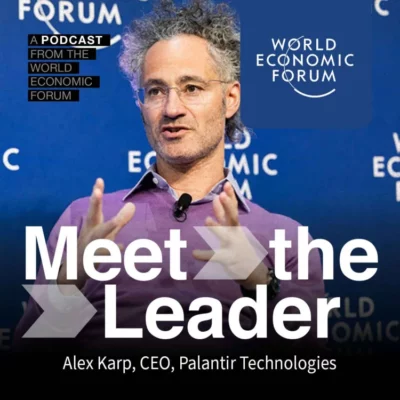
Davos 2023: A conversation with Palantir’s Alex Karp
Alex Karp shares with Carlyle Group founder David Rubenstein how he leads Denver-based analytics company Palantir Technologies. This thoughtful, wide-ranging and often funny conversation covers his non-traditional background, the company’s capabilites and what’s ahead for the economy in 2023, to Karp’s hair and why he lives in a backwoods shack in New Hampshire. Karp explains how he went from law school, into philosophy until finally teaming up with superstar investor Peter Thiel to start Palantir.

Technology can solve our problems – but only if we get the funding right
We are living through the most rapid period of intense technological innovation in human history, which in turn is providing us with the tools to help business and government navigate the uncertain times ahead. Digital technologies enable efficiency, helping heavy industries reduce emissions by up to 20% of their net-zero goals. The same technologies will ultimately provide billions of people with access to health, education or financial services for the first time. In another incarnation, these technologies can
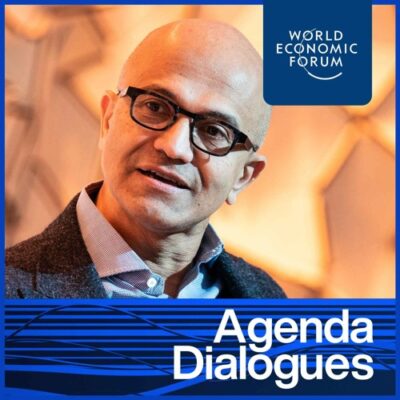
Davos 2023: A conversation with Satya Nadella
Does tech need a new business model? How will computing power drive the energy transition? What’s ahead for the tech skills gap? In a special conversation, the CEO of Microsoft talks to Klaus Schwab, World Economic Forum Founder and Executive Chairman, talk tech trends, AI, cybersecurity, economic growth and three trends driving the future of remote work. This is the full audio of the session of the conversation recorded at the Annual Meeting in Davos,
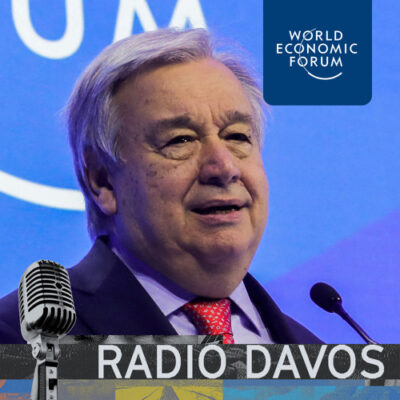
Davos 2023 Day 4: beware of the ‘Great Fracture’
On today’s Radio Davos, co-hosted by ‘Exponential View’ writer, author and podcaster Azeem Azhar, UN Secretary-General warns of a ‘great fracture’ in the world, Lithuanian Foreign Minister Gabrielius Landsbergis tells us the war in Ukraine affects the whole world. We talk to Caroline Casey of the disability inclusion campaign Valuable 500 and tour the art exhibition bringing the voice of refugees to Davos. “It is essential for the two countries to have meaningful engagement on

Transitioning Industrial Clusters towards Net Zero
This insight report highlights the experiences and perspectives of 11 industrial clusters that are a part of the Transitioning Industrial Clusters towards Net Zero initiative. These clusters, despite facing unique geographical, infrastructure, policy and sectoral challenges, have all developed comprehensive strategies to rapidly and equitably decarbonize their operations. The report focuses on four key areas for achieving this transition: partnerships, policy, financing and technology. Each cluster has adopted a balanced set of targets and strategies

Interoperability in the Metaverse
The next era of the internet is coming. The metaverse is an immersive, interoperable and synchronous digital world that will change how we interact, work and play. In May 2022, the World Economic Forum launched the Defining and Building the Metaverse Initiative, whose goal is to bring together major stakeholders from academia, civil society, government and business to advance consensus and create a metaverse that is economically viable, interoperable, safe, equitable and inclusive. The initiative is

Demystifying The Consumer Metaverse
The metaverse is coming: an immersive, interoperable and synchronous digital world that will change how we interact, work and play. In May 2022, the World Economic Forum launched the Defining and Building the Metaverse Initiative, whose goal is to bring together major stakeholders from academia, civil society, government and business to advance consensus and create a metaverse that is economically viable, interoperable, safe, equitable and inclusive. The initiative is divided into two workstreams: governance and economic
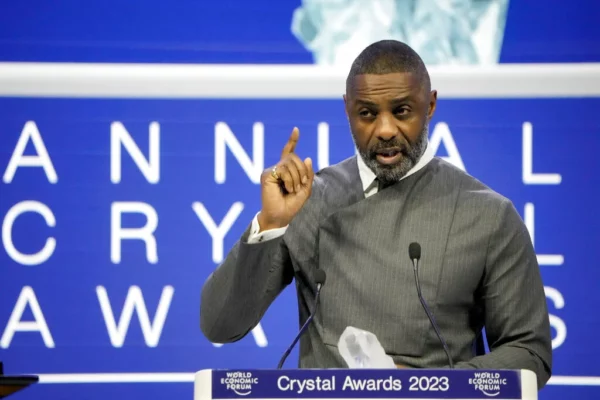
Crystal Awards Ceremony 2023 | Davos | World Economic Forum
At the opening ceremony of the World Economic Forum Annual Meeting 2023, meet the winners of the 28th Annual Crystal Awards. This year’s awardees are four exceptional cultural leaders who are being honoured for their work to promote environmental conservation, food security, climate change, mental health and education. Speakers: Hilde Schwab, Sabrina Dhowre Elba, Maya Lin, Renée Fleming, Idris Elba 00:00 – Introduction from Klaus Schwab02:59 – Hilde Schwab03:59 – Maya Lin Presentation10:51 – Renée
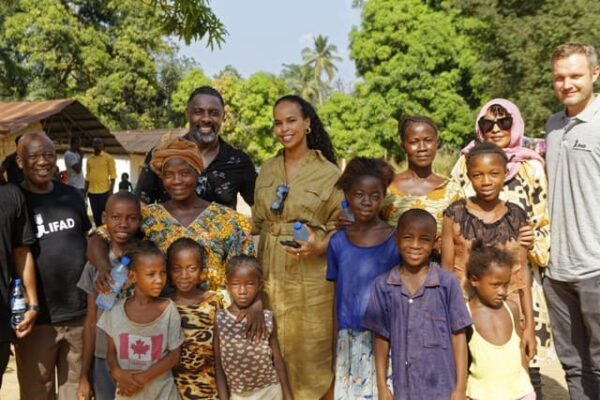
UN Goodwill Ambassadors: Idris Elba And Sabrina Dhowre Elba
Actor, filmmaker and humanitarian, Idris Elba, and his wife, model, actress and humanitarian, Sabrina Dhowre Elba, were appointed UN Goodwill Ambassadors for IFAD in April 2020. As IFAD Goodwill Ambassadors, they focus on issues related to food security, climate change and environmental conservation. The couple recently visited an IFAD-supported project in Sierra Leone, where they met farmers who received support for rice production and assistance with rural finance after the Ebola crisis. Queen Elizabeth II
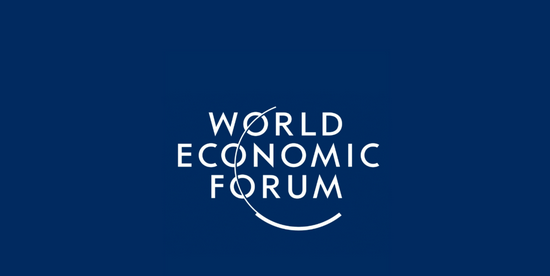
World Economic Forum: AM23 Daily Evening Briefing- Day 1
Highlights from Day 1: Chief economists: Prospects for growth are bleak. The World Economic Forum’s Chief Economist Outlook, which was released today, painted a significantly gloomier outlook for 2023 than most economists thought just three months ago. Almost two-thirds of the Forum’s community of Chief Economists forecast a global recession in 2023, more than double who thought the same in September. Businesses are expected to cut costs significantly, with 78% of economists in the survey

Welcoming Remarks and Special Address | Davos 2023 | World Economic Forum
Welcoming Remarks and Special Address from Klaus Schwab at Davos 2023. The World Economic Forum is the International Organization for Public-Private Cooperation. The Forum engages the foremost political, business, cultural and other leaders of society to shape global, regional and industry agendas. We believe that progress happens by bringing together people from all walks of life who have the drive and the influence to make positive change. World Economic Forum Website ► http://www.weforum.org/Facebook ► https://www.facebook.com/worldeconomi…YouTube
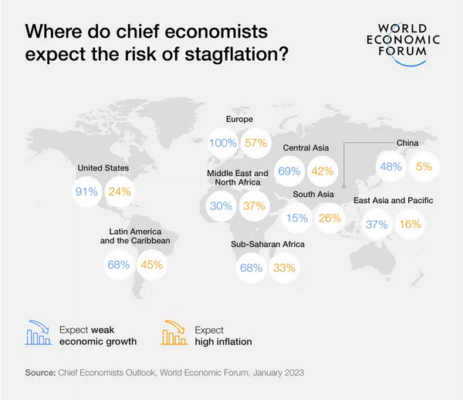
Chief Economists Outlook: January 2023
The January 2023 Chief Economists Outlook is published amid continuing economic uncertainty and challenges of historic proportions. As the world puts another tumultuous year behind it, governments, businesses and households will all have to grapple with persistent headwinds throughout 2023. Financial conditions remain tight, with little scope for significant loosening, despite much of the world economy being at risk of recession. However, according to the latest survey of the World Economic Forum’s Community of Chief
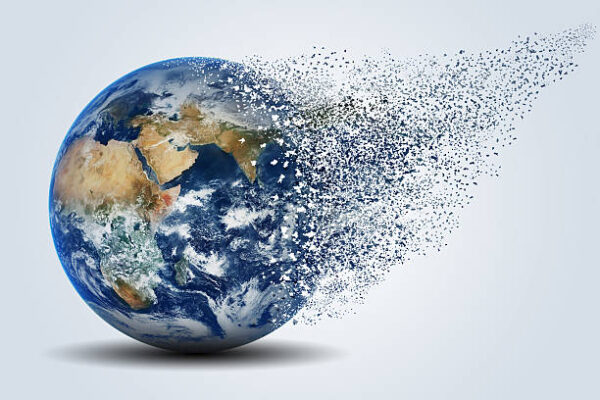
Cooperation in a Fragmented World
The world today is at a critical inflection point. The twin triggers of the COVID-19 pandemic and the war in Ukraine rattled an already brittle global system. Economic growth in the world’s largest economies is stalling, while navigating headwinds from rising food and energy prices. For the first time since the 1970s, the world is facing a precarious disequilibrium with growth and inflation moving in oppositive directions. This is occurring alongside heightened geo-economic fragmentation, financial
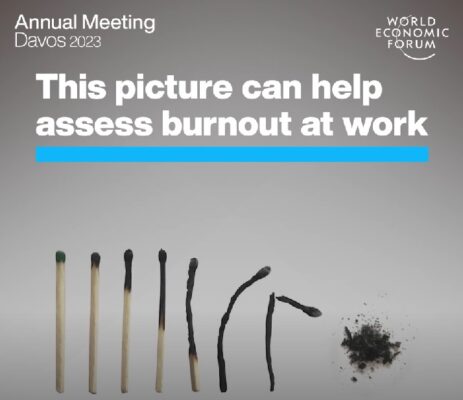
This Picture can Help Assess Burnout at Work
Burnout at work is a widespread and growing problem worldwide. A survey of 10,000 knowledge workers showed that 70% had experienced work burnout in the past year. This picture can help assess burnout at work. It features 8 matchsticks in a row, each more charred than the last. The scale is called the Muir Matches Measure created by Prof. Cindy P. Muir (Zapata). Organizations are using it to find out how their workers are feeling.
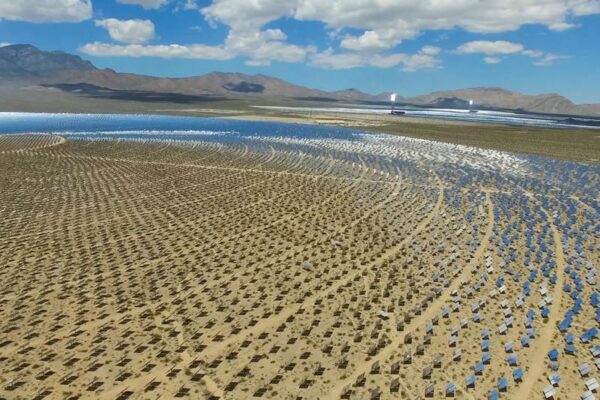
Foreign Investment in Clean Energy for the Global South is a Must
Meeting our climate change goals will require massive investments in clean energy projects, in both advanced economies and across the Global South. But financing projects in the latter group of countries requires an increase in foreign capital in-flows that will be constrained by currency exchange rate risk. Creating an innovative exchange rate coverage facility can help to overcome this constraint. Over the coming two decades, annual energy emissions across the Global South (not counting China)
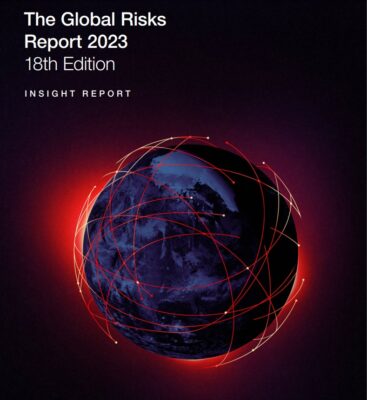
2023 Global Risks Report
Tensions Peak between Urgent Cost of Living Crisis and Sustainable Climate Action Conflict and geo-economic tensions have triggered a series of deeply interconnected global risks, according to the World Economic Forum’s Global Risks Report 2023. These include energy and food supply crunches, which are likely to persist for the next two years, and strong increases in the cost of living and debt servicing. At the same time, these crises risk undermining efforts to tackle longer-term risks, notably those related to
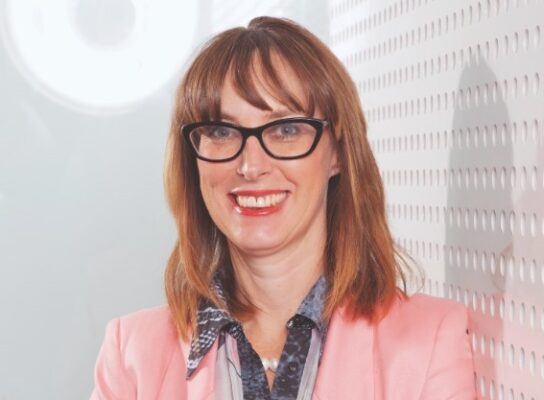
Corporate Africa’s Moment To Shine
Wendy Dobson, Head of Group Policy, Advocacy and Sustainability at Standard Bank Group As Africa grapples with a plethora of social, economic and environmental challenges, there is a substantial opportunity for large corporates to introspect and determine whether they are still staying true to their core purposes. For some time, much of the corporate world globally seemed focused mainly on satisfying the expectations of shareholders, while other important stakeholders were given less emphasis. In other

Measuring Stakeholder Capitalism
Measuring Stakeholder Capitalism: World’s Largest Companies Support Developing Core Set of Universal ESG Disclosures 140 of the world’s largest companies support effort to develop a core set of common metrics and disclosures on non-financial factors to their investors and other stakeholders. Chief executive officers increasingly see topics of Environmental, Social, and Governance (ESG) and Sustainable Development Goals (SDG) as important to long-term business value creation. At the request of its International Business Council (IBC), the
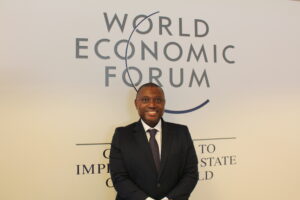
A Conversation with Standard Bank Chief Executive, Sim Tshabalala at #WEF20
Group CEO of Standard Bank, Sim Tshabalala believes this is the African century and that Africans will be the ones driving the development of the continent. He spoke to Teresa Clarke of Africa.com at the World Economic Forum in Davos about making sure the African continent plays its rightful role in the world by driving economic, social, human, and environmental developments. We are very fortunate today to have an opportunity to sit down with Sim
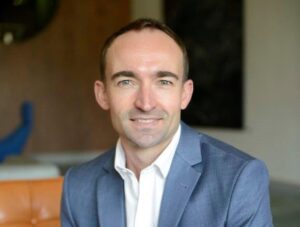
Africa’s Opportunity To Boost Growth By Winning Over Chinese Tourists
By Philip Myburgh, Executive Head, Pan Africa China PBB at Standard Bank Group With the number of Chinese outbound travellers surging each year, Africa has a significant opportunity to boost its economic development through tourism. The African tourism sector has made meaningful strides in recent years but is still barely scratching the surface of its potential. Boasting an enviable natural environment as well as rich and diverse cultures, Africa could be poised for a tourism

Could the Sahara Turn Africa into a Solar Superpower?
You may have seen a variant of this meme before. A map of North Africa is shown, with a surprisingly small box somewhere in Libya or Algeria shaded in. An area of the Sahara this size, the caption will say, could power the entire world through solar energy: Area of Sahara you’d need to cover with solar panels to supply the world’s electricity via @IFLScience pic.twitter.com/029gEJ4WT8 — Martin Varsavsky (@martinvars) April 20, 2015 Over the

Africa Will Develop with Oil & Gas – whether the West likes it or not
This article is part of the World Economic Forum Annual Meeting Boycotting oil and gas firms in Africa is a misguided course of action. Many are diversifying into renewables. Africa’s time to grow is here – and its natural resources are a part of that. In a 2014 article, Archbishop Desmond Tutu of South Africa argued for an Apartheid-style boycott on coal, oil and gas companies as a way to fight climate change and help ensure global environmental
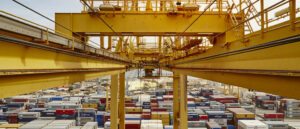
Partnership, Not Ownership will Turbocharge Africa’s Economy
This article is part of the World Economic Forum Annual Meeting Africa is missing out on the benefits global trade can bring. Tackling corruption, governance and security of contracts is crucial to boosting trade. The continent needs a network of logistics infrastructure to drive intra-continental trade. Something has gone wrong in the worldwide conversation about global trade. There is talk of trade wars; tariffs are being raised; non-tariff barriers are made tougher. It seems as if
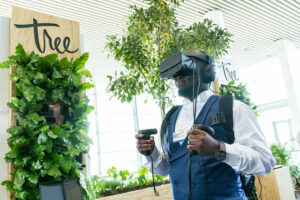
Insider’s Buzz Around WEF This Week
Didn’t make it to Cape Town for WEF? That’s OK – Below we will share with you some of the insider’s buzz that people in the know were talking about. You had to be there to know this stuff… Among the WEF delegates was Vogue cover girl Thando Hopa, a South African model, activist, and lawyer. She is the first woman with albinism to be on the cover of Vogue. While working as a prosecutor
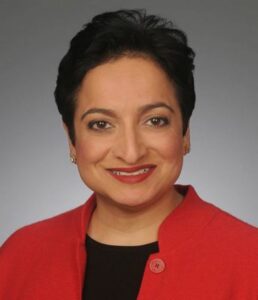
Q&A with Shamina Singh of the Center For Inclusive Growth
Africa.com had a chance to do an exclusive interview with Shamina Singh, President of the Center for Inclusive Growth. This interview comes on the final day of the World Economic Forum Africa, taking place in Cape Town, South Africa. Shamina had just concluded an event at WEF featuring a panel discussion on digital transformation hosted by the Center along with The Fletcher School of Tufts University. In discussing the importance of this topic, she quoted

When Industries Collide
Mastercard in partnership with Deloitte hosted an insightful and robust panel discussion under the theme “When Industries Collide: How to manage the forces of Competition & Collaboration in a Converging World”. The panel was moderated by Martyn Davies, Emerging Markets and Africa Managing Partner | WEF Young Global Leader Alumni, and included these esteemed panelists: Mark Elliot, President, Southern Africa, Mastercard Kuseni Dlamini, Chairman, Massmart Douglas Craigie Stevenson, CEO, Cell C Bob Contri, Global Financial Services Leader,
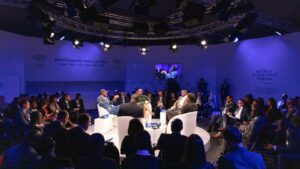
The Five People You Need to Know Who Were at WEF Africa
The World Economic Forum on Africa concluded today, having explored the theme, ‘Shaping Inclusive Growth and Shared Futures in the Fourth Industrial Revolution’ over three days in Cape Town, South Africa. South African President Cyril Ramaphosa South African President Cyril Ramaphosa was already in the spotlight as the president of the host country for WEF, but this role took on greater proportions given the xenophobic attacks in Johannesburg that caused some keynotes and delegates from

#TogetherWeLead
“You need to harness the collective uniqueness of those around you to widen your field of vision – to see things differently, to fail harder, to innovate, and to question everything. Widening that field of vision means widening your worldview.” – Ajay Banga, CEO, Mastercard
Podcast: The Future of the Payment Industry with Mark Elliott
In this 30-minute podcast, Mark Elliott, Division President, Southern Africa, Mastercard provides insightful observations on the future of the payments industry from his unique perspective overseeing Mastercard for all of Southern Africa, including themes such as why cash continues to dominate the payments space, how digital alternatives to cash must compete with cash, regulation, interoperability and infrastructure.

Shedding Light on the Informal Economy: Technology and Partnerships to Drive Next Wave of Financial Inclusion in Africa
By Mark Elliott, Division President of Mastercard Southern Africa Despite positive advances in financial inclusion on the continent, 95 percent of all consumer payments in Africa are still made in cash. Why is this such a bad thing? For the people and microentrepreneurs who are trapped in cash-only systems, it’s much harder to grow a business, much less safe to save, and much more difficult to forge a path into the middle class. Cash is
